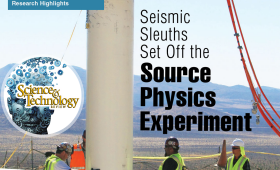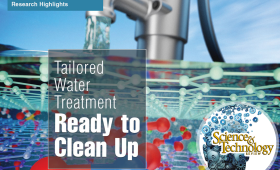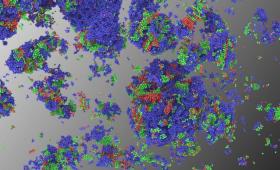Livermore researchers report on a new mechanism of solidification in copper that alters the fundamental understanding of nucleation at high pressure.
Science and Technology
in the News
Science and Technology
in the News
News Center

Livermore scientists are leveraging their extensive experience studying the movement of airborne hazards to better understand the movement of virus-like particles through the air.

One year after publishing the groundbreaking "Getting to Neutral: Options for Negative Carbon Emissions in California," Lawrence Livermore has become a trusted adviser in the discussion of how to remove carbon dioxide from the air.

New research is shedding light on the deflagration-to-detonation transition” process to make explosives safer for handling, storage and transportation.

Livermore computer scientists have developed a new deep learning approach to designing emulators for scientific processes that is more accurate and efficient than existing methods.

Researchers have taken important steps to show that thermal conduction is important and measurable at high pressure and temperature conditions.

To successfully combat increasing antibiotic resistance and treat challenging bacterial infections, scientists in the Forensic Science Center (FSC) have partnered with San Diego State University and UCSD to advance bacteriophage therapy.

The Source Physics Experiment (SPE) is helping to discriminate among the seismic fingerprints of a small, illicit nuclear explosion, an earthquake, a mine disaster, or any of the other noises that a variety of human activities and natural phenomena generate.

Livermore scientists working alongside Stanford University researchers have made headway toward a new generation of tailored, reversible water treatment.

An international team of researchers led by LLNL and the University of Oxford has successfully measured carbon at pressures reaching 2,000 GPa (five times the pressure in Earth’s core).

